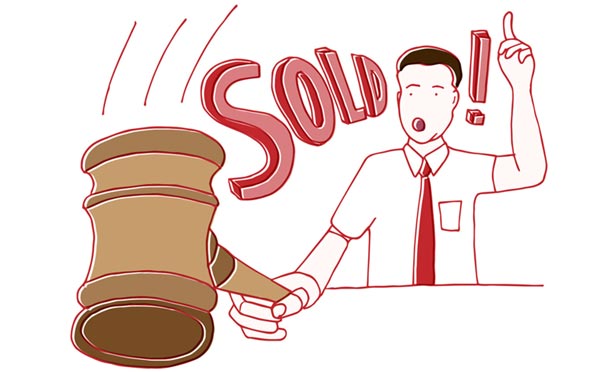
CEO’s Blog – Life as a teenage entrepreneur
Both my mother and father worked day and night when I was a kid. People sometimes ask where my work ethic comes from, and it’s from them, 100%.
From the age of 10, I would be with them, travelling all over the UK. My dad ran an auction business, and we’d be in Glasgow one day, London the next. My mum worked as the cashier. It was a true family business.
Dad would put an advert in the Evening Standard, offering TVs for £5, fan heaters for 50p, and so on. Up to 1,000 people would come to these auctions, and bid for the goods. That was my introduction to the world of business: seeing my dad up on the rostrum, commanding the audience. He was a great showman.
My dad let me have a go selling a few lots. It was late in the day, so there were fewer people left in the room. I remember getting up on the rostrum, and learning the patter: “If you miss this, you will miss your way home…”
This is how I learned the basics about business: buy, sell, make a profit. It was also how I learned to be a salesman. At 14, I started my first business. My best friend and I bought a printing machine for £500 from Exchange and Mart, the old classifieds magazine. We bought some card and some pens and offered to print promotional flyers and goods for small businesses. We used to hop on the train and go to Leeds, Sheffield, Blackpool – all over, trying to convince restaurants and shops to buy from us.
We got some orders, came home, and tried to print the things. For people who don’t remember these old machines, you put the type into the jig, and the machine would warm up, the type would hit the foil, and the words would be stamped onto the card. But our machine was faulty from the start. The type would just melt onto the jig. It was a complete con. This was my first experience of what entrepreneurs now call “a barrier to growth”. It was also the moment I knew for sure that I was a salesman and not a manufacturer.
Instead, we took the orders to a printing company and had them made. The customers never knew about the faulty machine, which we eventually managed to sell back to the manufacturer. We ran that business for almost a year. We even had our own little office in Leeds. But the money wasn’t great and it wasn’t a business we could scale.
I left school when I was 15 and started working Saturdays at an upmarket menswear shop called Cecil Gee. Next, I moved to a high-end jewellery shop. Then I was a blue coat on the shop floor at Comet, the old electricals chain. All of these early experiences helped me to understand the customer, anticipate what they needed, and work out the best way to solve their problems.
That’s when I began working with my father full-time. This was during the Thatcher era, when imports were starting to flood into the UK and factories were stuck with loads of stock they couldn’t sell. Interest rates were as high as 15% in those days so companies would sell £500,000 worth of stock for £100,000 just to get some cash back in the business. This is where I learned the power of market forces, and how the economy can work with you or against you.
I learned a lot of entrepreneurial lessons in my early teens that stood me in good stead for the rest of my life. But it’s remarkable how often we have to remind ourselves to follow the basics. ‘Buy at one price and sell for a profit’ seems obvious, but when you have a new business, you often undervalue your services just to get the deal. I’m grateful to my parents for giving me an education in business from such an early age. I feel like it’s always been in my blood.
In my next post, I’ll talk about how I ended up going to America, and starting up my bread business – the first company I successfully sold. But for now, I would be grateful if anyone would share stories about being a teenage entrepreneur. What were the first lessons you learned in business? Did you have entrepreneurial parents, like mine, or did you learn everything for yourself?
Martin Port
Founder & CEO
